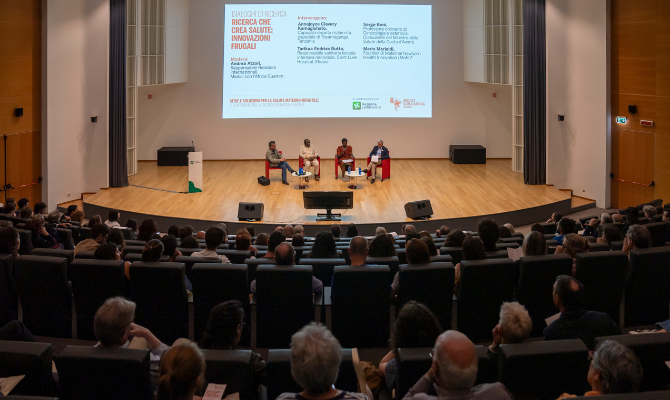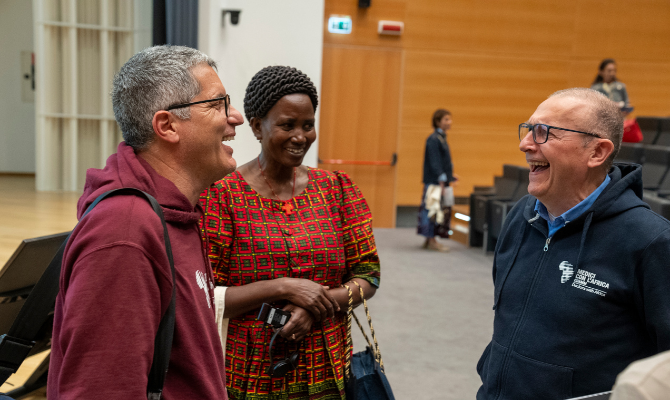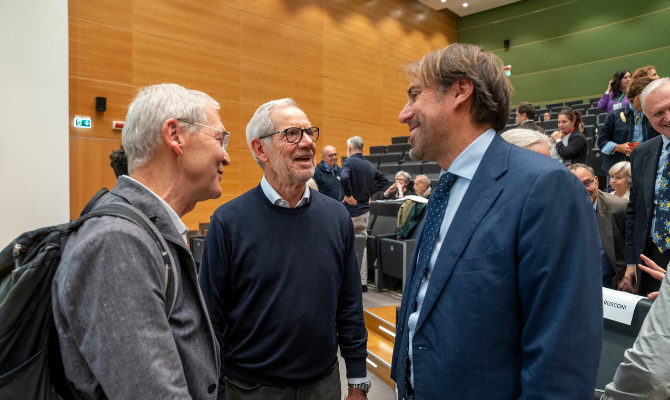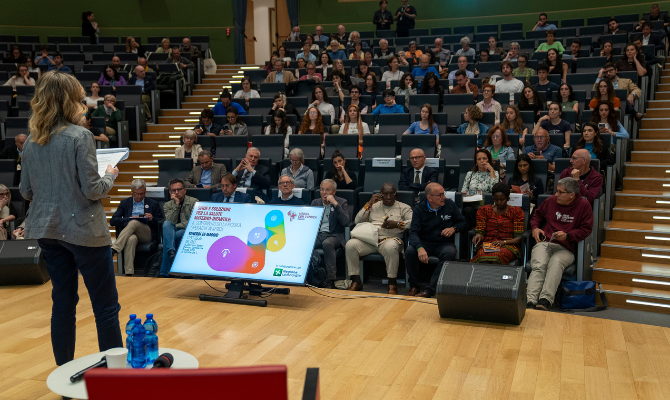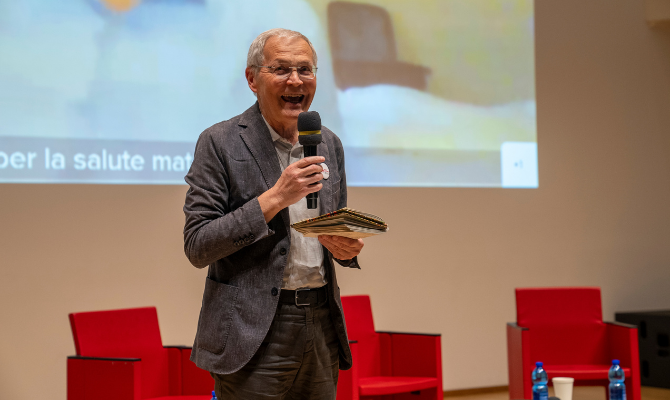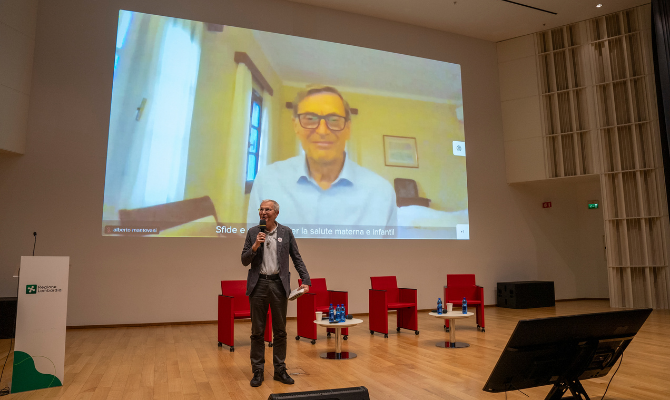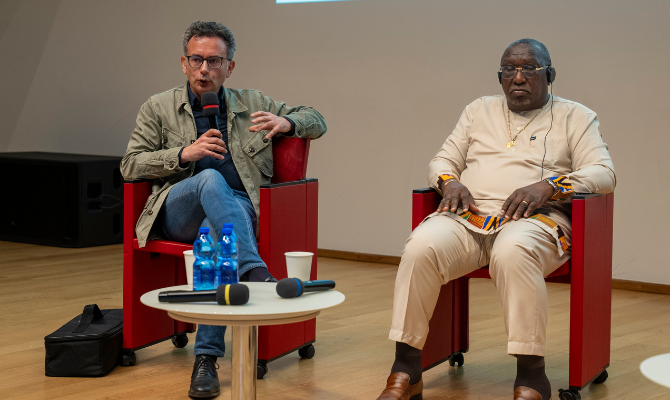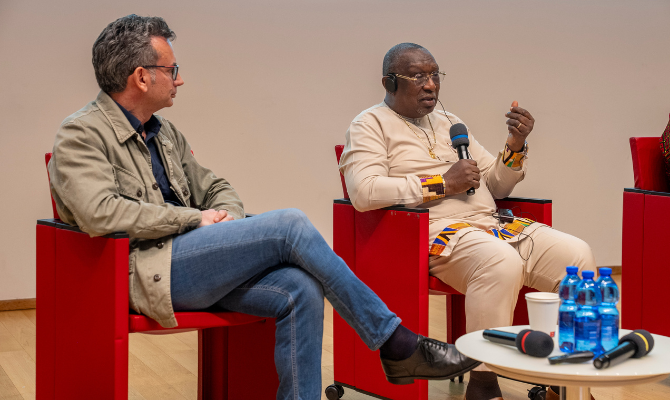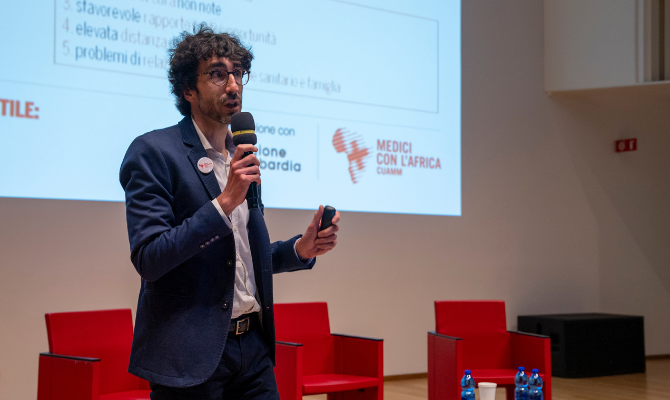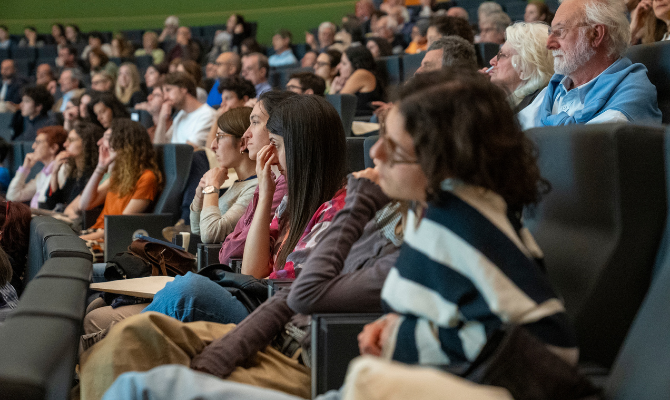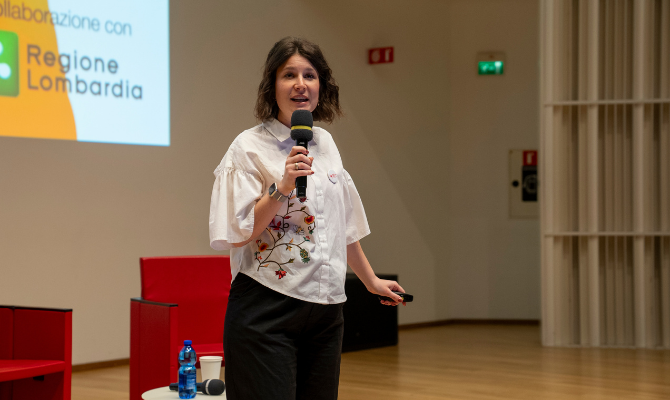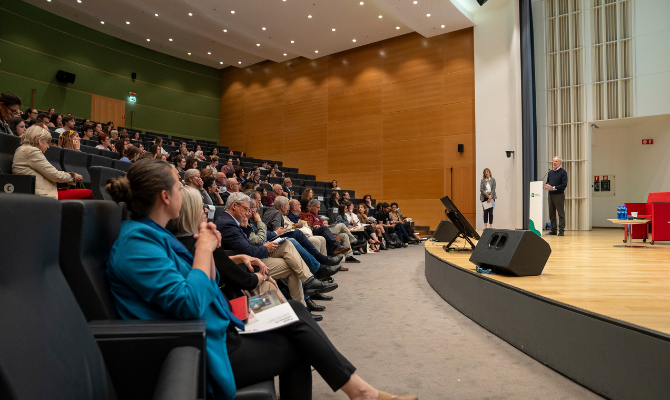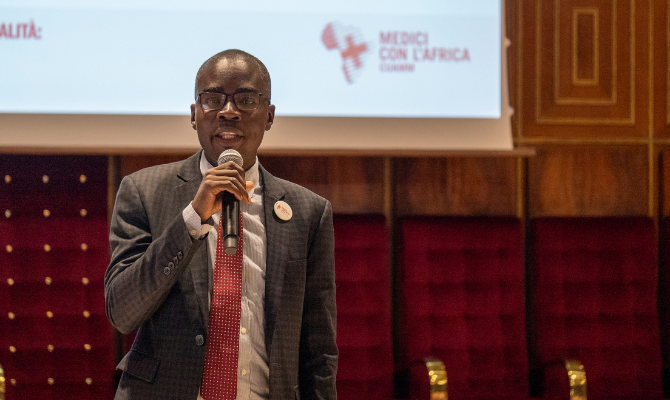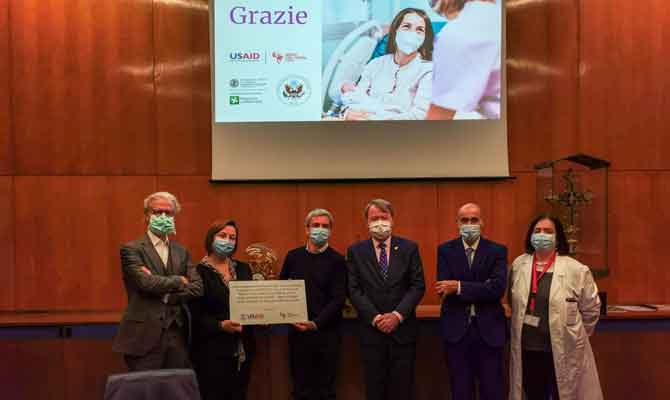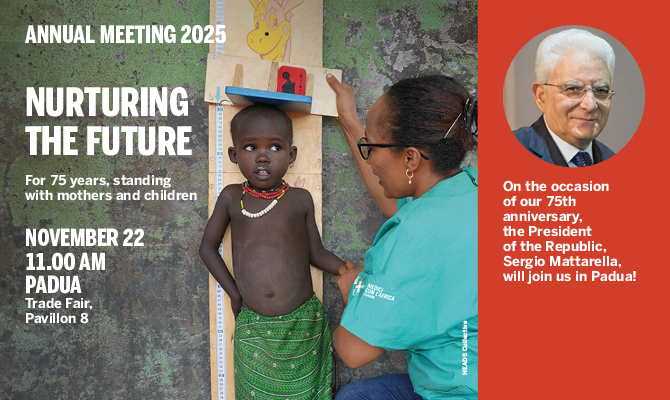We Were 250 in Milan: Discussing the Role of Operational Research in Africa
On Friday, May 16, 2025 our annual event on Operational Research in Africa was held at the Testori Auditorium in Palazzo Lombardia in Milan. The event, promoted by Doctors with Africa CUAMM in collaboration with the Lombardy Region, was hosted by Chiara Bidoli, editor-in-chief at Corriere della Sera newspaper.
The event served as an opportunity to showcase how research is not only a key tool for understanding reality, but also for tackling healthcare challenges in low-resource settings with accountability and innovation unlocking effective, concrete and sustainable answers.
Many diverse voices contributed to the discussion—from institutional representatives to the direct experience of those working directly in the field. It was a meeting that brought together young individuals eager to contribute through research and seasoned professionals with deep-rooted experience.
A Bridge Between Institutions and the Field
The event opened with institutional greetings from Guido Bertolaso, Welfare Councillor for the Lombardy Region, who reflected on his long-standing relationship with Doctors with Africa CUAMM and offered a heartfelt remembrance of Don Luigi Mazzucato, former director at CUAMM, ten years after his passing:
“I’ve been a CUAMM volunteer for many years. It’s where I got my start, working with people who are no longer with us—like our beloved Don Luigi, who was a father, a brother, and a guide for all of us. Along with Don Luigi, I also want to remember another great mentor, Anacleto Dal Lago. I have a long history of esteem and affection for both.”

Following him, Marco Rusconi, Director of the Italian Agency for Development Cooperation (AICS), emphasized the role of cooperation in promoting equity and strengthening systems:
“The goal of development cooperation—as defined by law—is to reduce inequality. And we know that health is one of the most visible dimensions of inequality. The poorer you are, the more likely you are to fall ill, and the less likely you are to get treatment. That’s why working with local institutions is essential. We don’t operate in a vacuum—there are already existing structures, centers, and universities on the ground. What they ask of us is to support their growth. Ground-level engagement is key to understanding; if we flip the perspective, the ‘last mile’ becomes the first.”

This collaboration with local institutions is vital not only for making the “with” in CUAMM’s name a reality, but also to carry out their mission effectively, without overlooking any detail. Giovanni Putoto, Head of Planning and Operational Research at CUAMM, reminded:
“CUAMM isn’t a research institution per se—that’s not our specific mandate. That’s why we’ve partnered widely to make nearly 100 publications since 2013 possible. Who are our partners in Africa? Communities, associations, local professionals, district directors… the whole of Africa! Along with 34 Italian universities.”
Daily collaborative work, built over time through relationships and partnerships, is the only real answer to the weakening that many health systems—especially in Africa— have been experiencing in recent years. The reasons are many, as highlighted by Peter Waiswa, Associate Professor at Makerere University in Uganda:
“Each year, 260,000 women die from pregnancy-related causes, 2.3 million newborns die, 1.9 million babies are stillborn, and over 5 million children under five years old die. These numbers are unacceptable. Limited intervention coverage and weak health systems—further impacted by COVID-19 and conflicts in countries like the Democratic Republic of Congo or South Sudan—make inequalities even worse. Vertical, single-focus programs often aggravate the problem. What we need is a systemic, integrated, person- and community-centered approach.”
Voices from the Field: Youth, Tools, and Possible Solutions
Faced with such a daunting picture—which could seem discouraging to those unfamiliar with CUAMM’s tenacity and its partners—the second part of the evening offered a note of optimism. This was the time for “4 Minutes Talks,” brief presentations by young researchers sharing concrete experiences in operational research from the field.
Topics ranged from frugal engineering in newborn care, to pediatric malnutrition examined from the community’s perspective, and psychological support for families with infants in intensive care.
“52% of mothers show signs of depression. But no one notices,” said Ilaria Mariani, a researcher at WHO Collaborating Centre IRCCS Maternal and Child Health Institute “Burlo Garofolo.”
Understanding these realities helps drive more effective community-based work. Likewise, addressing growing resistance to antimalarial drugs in pregnant women and children is crucial. That’s the focus of Valentina Totaro, an infectious disease resident at the University of Bari “Aldo Moro”:
“Identifying drug resistance is a public health action that helps guide prevention and treatment programs benefiting the entire community.”
Matilde Aldeghi, a nurse from the University of Milano-Bicocca, investigated how nurses’ working conditions affect their performance in pediatric care:
“If the crew isn’t in a position to work well, no spaceship is going to take us anywhere.”
These are small but essential building blocks of lasting change. Just as the ability to innovate with limited resources can transform a hospital. Sofia Poletto, PhD in bioengineering at Politecnico di Milano, worked on Safer, a new type of neonatal resuscitator that is compact, portable, and effective in low-resource settings—requiring no external air supply or oxygen tanks:
“Technology can make a difference—if it’s designed by listening to those who will use it.”
Giacomo Buzzao, a researcher at the Venice School of Management at Ca’ Foscari University, explored how to make ambulance use more affordable in Beira, Mozambique. His research, part of the AICS-funded UR-Beira project, led to a command center coordinating emergency transfers between peripheral health centers and the main hospital in Beira:
“Thanks to this work, the cost of an emergency patient transfer is 27.59 euros.” A remarkable achievement.
Andrea Pietravalle, a pediatrician with CUAMM, concluded the talks:
“Malnutrition isn’t ‘just’ about hunger. It’s directly or indirectly responsible for 45% of all deaths under age five globally. It affects 45 million children—equivalent to every child in Italy, France, and Spain combined.”
Together, these experiences form a mosaic of bottom-up research, deeply rooted in human connection, context, and care.
Roundtable: Dialogues in Research
That same spirit animated the roundtable Dialogues in Research, moderated by Andrea Atzori, CUAMM’s Head of International Relations. Key speakers included Annajoyce Clavery Kamugisha, Head nurse at the maternity ward of Tosamaganga Hospital in Tanzania; Tarikua Endrias Butta, Head of neonatal intensive care at Saint Luke Hospital in Ethiopia (online); Serge Boni, Professor of obstetrics and gynecology and advisor to the Ivorian Minister of Health; and Mario Merialdi, founder of Maternal Newborn Health Innovation (MNHI).
Four diverse experiences from across Africa, all highlighting the urgent need to strengthen local health systems through practical approaches that combine scientific rigor, innovation, and community engagement.

Annajoyce Kamugisha emphasized the “dramatic shortage of trained personnel for assisted vaginal deliveries,” which remain underrecognized and poorly managed due to a lack of skills and tools:
“Yes, we’ve achieved great successes, but the challenges remain critical.”
Tarikua Butta presented neonatal intensive care registries now active in Mozambique, Tanzania, and Ethiopia, which are improving care quality and informing decisions:
“It’s an essential tool for standardizing data, preventing major causes of death, and guiding hospitals toward electronic health systems.”
Serge Boni stressed the importance of task shifting—delegating clinical tasks to trained non-physician staff:
“Maternal and neonatal mortality isn’t just a health issue; it’s a social issue. To make an impact, we need synergy among communities, politics, and the healthcare system.”
Mario Merialdi introduced OdonAssist, an innovative tool for assisted vaginal delivery:
“It’s simple to use, safe for the baby, and ideal for midwives who must make quick decisions in settings without specialized doctors. It’s a democratic system—it works in Milan just as well as in Wolisso.”
He warned:
“Maternal and child health technology is still too driven by the needs of high-income countries. We need to listen more to those working in resource-limited settings.”
Closing the Circle: Knowledge That Matters
Before the final remarks from CUAMM director Don Dante Carraro, the evening closed with greetings from Alberto Mantovani, Scientific Director of Humanitas and member of the Accademia dei Lincei:
“I’m very sorry I couldn’t be there in person,” said Mantovani via video link. “Especially after hearing these powerful talks. I’ve learned a lot in Africa—particularly a different vision of research, one more rooted in real needs. I’ve come to understand that training and research are inseparable. Without research, training is empty; without training, research becomes detached from reality.”

Don Dante concluded:
“Today, we’ve talked about important things: youth, research, innovation. But most importantly, we reaffirmed something simple: to truly understand problems, you have to study them. And once studied, you have to act to change them—not to publish papers, not to seek fame. We care about publishing because it provides solid data for the entire scientific community—even if it comes from an African country with extremely limited resources. Even if it’s about fragile contexts. Even if it speaks of mothers, children, and patients


